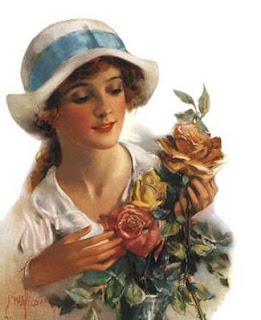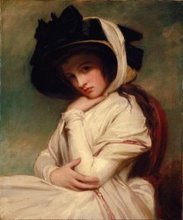
The diary of a 14-year-old Jewish girl dubbed the "Polish Anne Frank" was unveiled on Monday, chronicling the horrors she witnessed in a Jewish ghetto — at one point watching a Nazi soldier tear a Jewish baby away from his mother and kill him with his bare hands.
The diary, written by Rutka Laskier in 1943 shortly before she was deported to Auschwitz, was released by Israel's Holocaust museum more than 60 years after she recorded what is both a daily account of the horrors of the Holocaust in Bedzin, Poland and a memoir of the life of a teenager in extraordinary circumstances.
"The rope around us is getting tighter and tighter," the teenager wrote in 1943, shortly before she was deported to Auschwitz. "I'm turning into an animal waiting to die."
Within a few months Rutka was dead and, it seemed, her diary lost. But last year, a Polish friend who had saved the notebook finally came forth, exposing a riveting historical document.
Rutka's Notebook . The 60-page memoir includes innocent adolescent banter, concerns and first loves — combined with a cold analysis of the fate of European Jewry.
"I simply can't believe that one day I will be allowed to leave this house without the yellow star. Or even that this war will end one day. If this happens I will probably lose my mind from joy," she wrote on Feb. 5, 1943.
"The little faith I used to have has been completely shattered. If God existed, He would have certainly not permitted that human beings be thrown alive into furnaces, and the heads of little toddlers be smashed with gun butts or shoved into sacks and gassed to death."
Reports of the gassing of Jews, which were not common knowledge in the West by then, apparently had filtered into the Bedzin ghetto, which was near Auschwitz, Yad Vashem experts said.
The following day she opened her entry with a heated description of her hatred toward her Nazi tormentors. But then, in an effortless transition, she described her crush on a boy named Janek and the anticipation of a first kiss.
"I think my womanhood has awoken in me. That means, yesterday when I was taking a bath and the water stroked my body, I longed for someone's hands to stroke me," she wrote. "I didn't know what it was, I have never had such sensations until now."
Later that day, she shifted back to her harsh reality, describing how she watched as a Nazi soldier tore a Jewish baby away from his mother and killed him with his bare hands.
The diary chronicles Rutka's life from January to April 1943. She shared it with her friend Stanislawa Sapinska, who she met after Rutka's family moved into a home owned by Sapinska's family, which had been confiscated by the Nazis to be included in the Bedzin ghetto. Sapinska came to inspect the house and the girls — one Jewish, one Christian — formed a deep bond.
When Rutka feared she would not survive, she told her friend about the diary. Sapinska offered to hide it in the basement under the floorboards. After the war, she returned to reclaim it.
"She wanted me to save the diary," Sapinska, now in her 80s, recalled Monday. "She said 'I don't know if I will survive, but I want the diary to live on, so that everyone will know what happened to the Jews.'"
In 1943, Rutka was the same age as Anne Frank, the Dutch teenager whose Holocaust diary has become one of the most widely read books in the world. Yad Vashem said Rutka's newly discovered diary was authenticated by experts and Holocaust survivors.
Rutka's father, Yaakov, was the family's only survivor. He died in 1986. But unlike Anne Frank's father, he kept his painful past inside. After the war, he moved to Israel, where he started a new family. His Israeli daughter, Zahava Sherz, said her father never spoke of his other children, and the diary introduced her to the long-lost family she never knew.
"I was struck by this deep connection to Rutka," said Sherz, 57. "I was an only child, and now I suddenly have an older sister. This black hole was suddenly filled, and I immediately fell in love with her."
"I have a feeling that I am writing for the last time,There is an Aktion [a Nazi arrest operation] in town. I'm not allowed to go out and I'm going crazy, imprisoned in my own house. For a few days, something's in the air. The town is breathlessly waiting in anticipation, and this anticipation is the worst of all. I wish it would end already! This torment; this is hell." Rutka wrote on Feb. 20, 1943, as Nazi soldiers began gathering Jews outside her home for deportation.
"I wish it would end already! This torment; this is hell. I try to escape from these thoughts of the next day, but they keep haunting me like nagging flies. If only I could say, it's over, you only die once ... but I can't, because despite all these atrocities, I want to live, and wait for the following day.That means waiting for Auschwitz or labour camp. I must not think about this so now I'll start writing about private matters."However, Rutka would write again. Her last entry was dated April 24, 1943, and her last written words were: "I'm very bored. The entire day I'm walking around the room. I have nothing to do."
In August, she and her family were sent to Auschwitz, where she is believed to have been killed upon arrival.
 2: The Second Tiara belongs to the present Queen and was originally bought by Queen Mary from the Russian Royal family. It is known as the Vladimir Tiara.
2: The Second Tiara belongs to the present Queen and was originally bought by Queen Mary from the Russian Royal family. It is known as the Vladimir Tiara.


 6: The sixth Tiara is worn by the late Queen Elizabeth the Queen Mother. It was made up of diamonds from Africa. Which were given to the Royal family as a gift.
6: The sixth Tiara is worn by the late Queen Elizabeth the Queen Mother. It was made up of diamonds from Africa. Which were given to the Royal family as a gift.





































